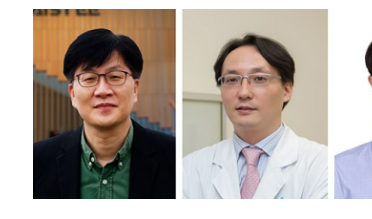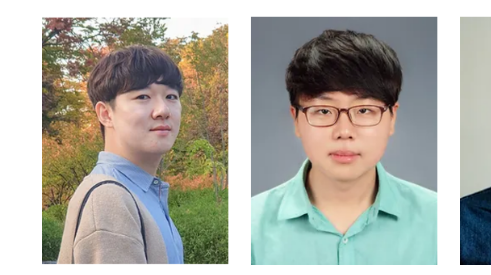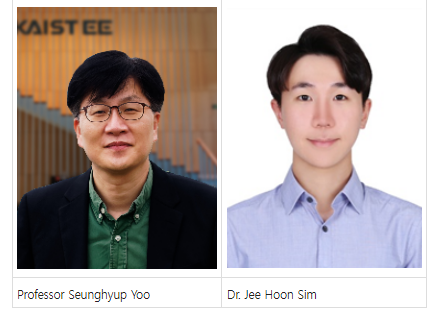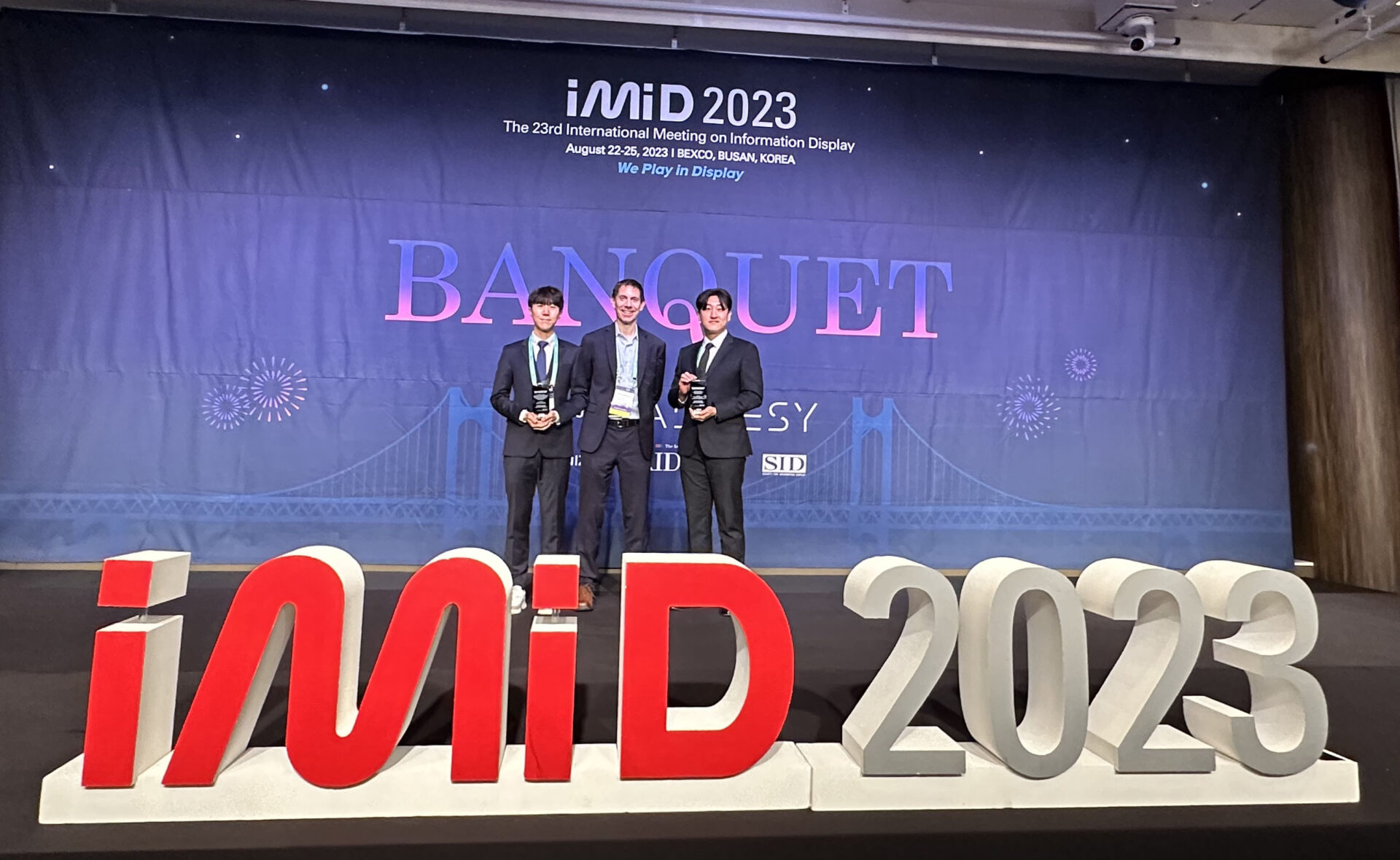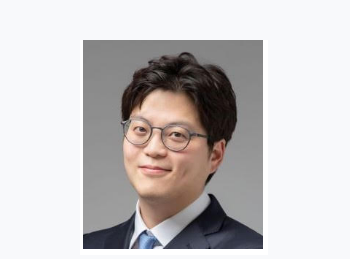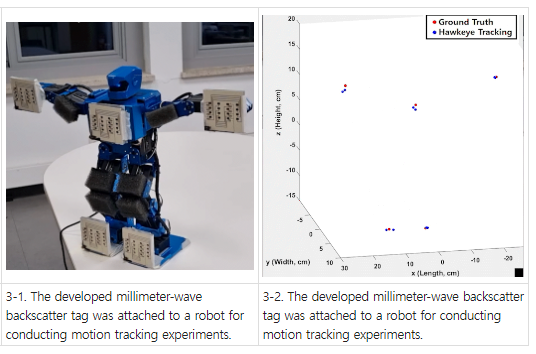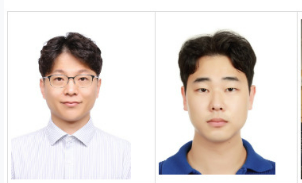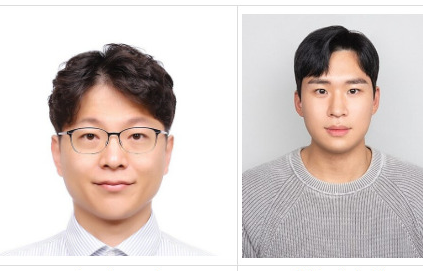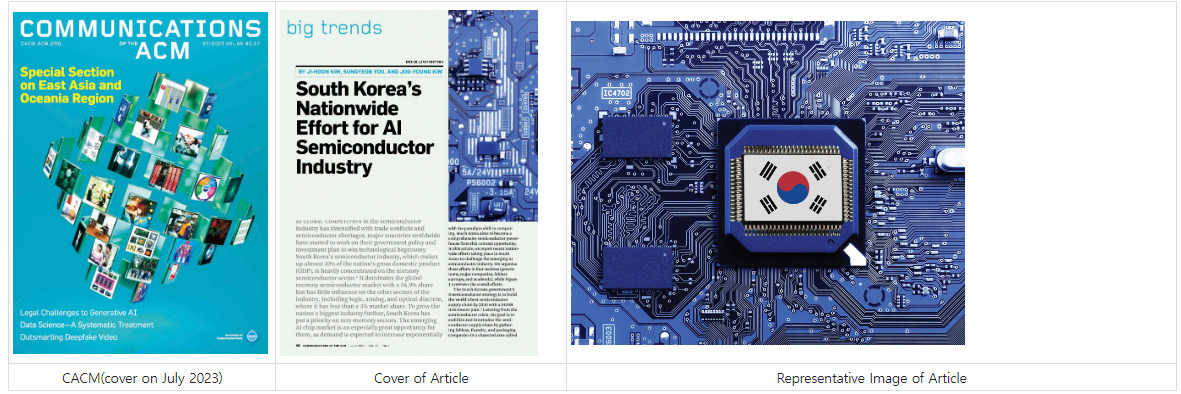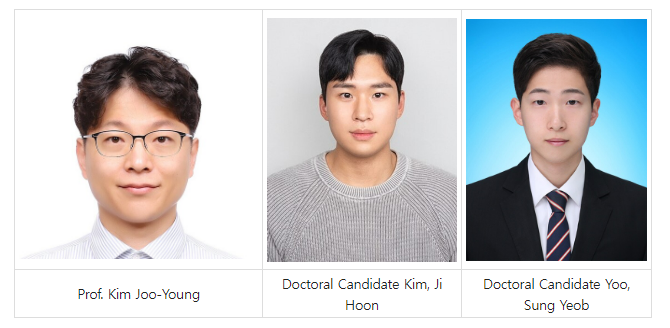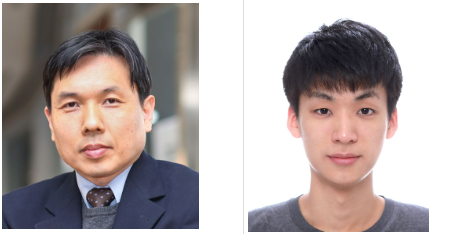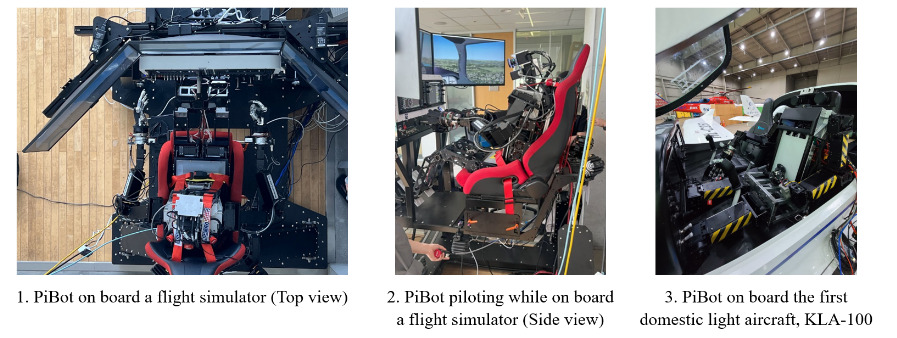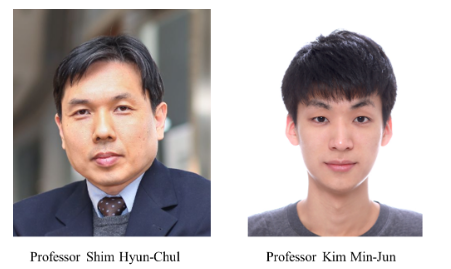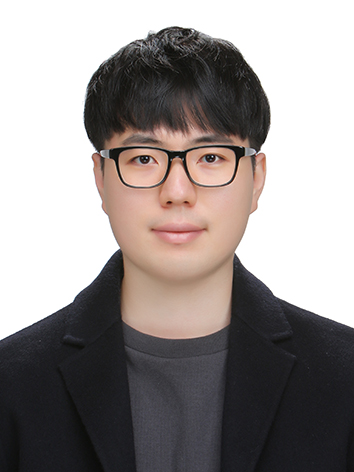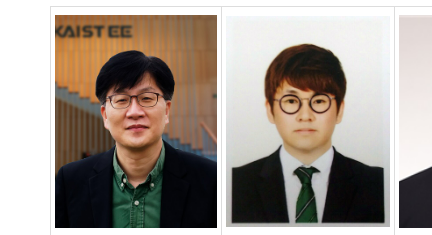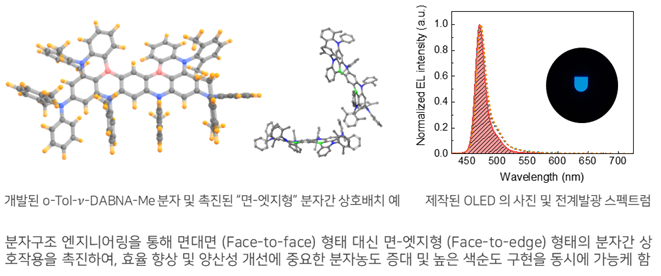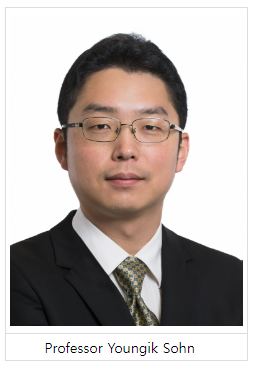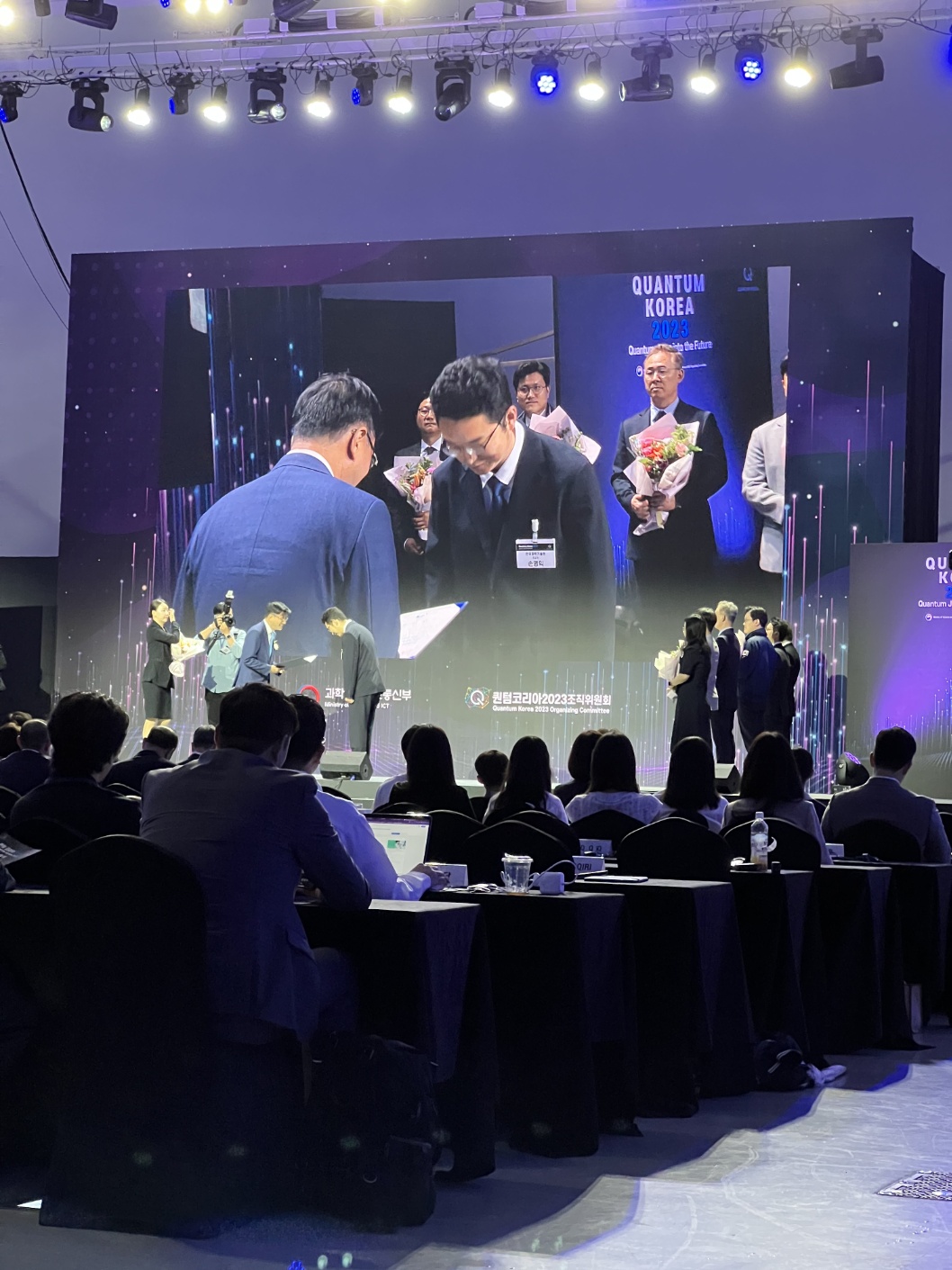[Professor Yoo Seunghyup’s joint research team world’s first implementation of in-body OLED light therapy]

[Heading: (From the left) Professor Yoo Seunghyup from the Department of Electrical and Electronic Engineering, Professor Park Do-hyun from Seoul Asan Hospital, Dr. Sim Jee hoon from our university, Ph.D. student Kwon Jin-hee from Ulsan University, and Ph.D. student Chae Hyeonwook from our university.]
Light therapy has been steadily gaining attention recently for its ability to produce various positive effects without surgical or pharmaceutical intervention.
However, due to limitations such as light absorption and scattering within the skin, it is typically confined to external applications like the skin surface.
This poses a challenge when trying to apply it to internal organs, which have significant medical importance.
On September 13th, a joint research team consisting of Professor Yoo Seunghyup from the Department of Electrical and Electronic Engineering at our university, Professor Park Do-hyun from the Department of Gastroenterology at Seoul Asan Hospital, and the Real-Device Research Division of the Electronics and Telecommunications Research Institute announced that they have, for the first time in the world, developed an OLED (Organic Light-Emitting Diode) based catheter*.
This opens the way to apply light therapy to internal organs.
Catheter: A thin tube made of rubber or metal material, primarily used to remove contents from a patient’s digestive tract, bronchus, or blood vessels, or to inject drugs or cleaning agents into the body.
The joint research team developed an OLED platform in the form of a catheter, creating an OLED light therapy device that can be directly inserted into tubular organs like the small intestine. They aimed to verify its potential to improve Type 2 diabetes, one of the major adult diseases of today.
The joint research team developed an ultra-thin, flexible OLED that is mechanically stable and functions well in a moist environment.
They created an OLED catheter that wraps around a cylindrical structure, emitting uniform light in all directions. Moreover, the unique low-heat emission characteristic of OLED as a surface light source prevented tissue damage from heat upon insertion into the body. By using biocompatible materials, they minimized potential side effects on the body.
The joint research team conducted animal experiments on a Type 2 diabetes rat model (Goto-Kakizaki rat, GK rat) using the OLED catheter platform. In the experimental group where a total of 798 millijoules (mJ) of light energy was delivered to the small intestine, there was a trend of decreased blood sugar and reduced insulin resistance compared to the control group.
Additionally, other medical improvements, such as a reduction in liver fibrosis, were observed. This represents the world’s first results of conducting light therapy by inserting OLED components into the body.
Millijoule (mJ): One-thousandth of a joule (Joule), a unit of energy. The amount of light emitted from a light source is typically represented in milliwatts (mW) per unit time. The millijoule is calculated by multiplying the milliwatt by time (seconds). In this study, a red light of 1.33 milliwatts from the OLED catheter was shone for 10 minutes (600 seconds), delivering a total light energy of 798 mJ.
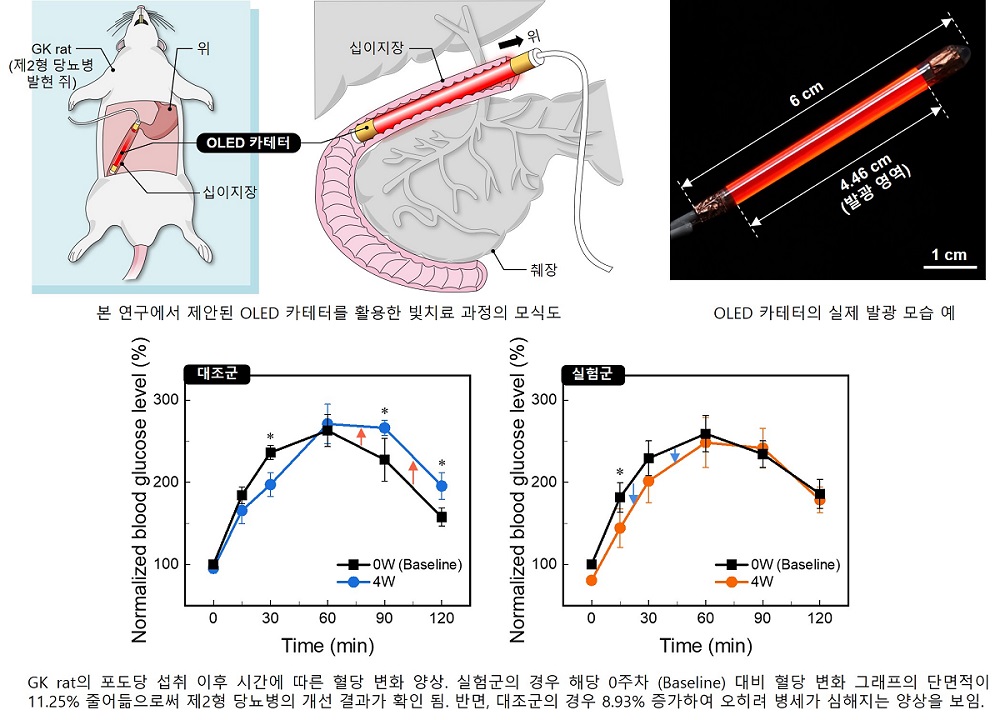
[heading: Figure 1. Schematic of the light therapy process using the OLED catheter, photos of the device, and graphs of the animal experiment results.]
The research, jointly led by Dr. Sim Jee hoon and Ph.D. student Chae Hyeonwook from Professor Yoo Seunghyup’s laboratory at our university, and Ph.D. student Kwon Jin-hee from Professor Park Do-hyun’s laboratory at Seoul Asan Hospital, Ulsan University College of Medicine, was published in the online edition of the international academic journal ‘Science Advances’ on September 1, 2023. (Paper Title: OLED catheters for inner-body phototherapy: A case of type 2 diabetes mellitus improved via duodenal photobiomodulation)
Professor Yoo Seunghyup commented, “Securing OLED technology for biomedical applications is one of the crucial tasks in opening new horizons for the OLED industry, which has mainly been confined to the display or lighting sectors. This research exemplifies the importance of systematic convergent research and collaboration between device and medical groups in exploring new application areas and acquiring core technologies.”
Furthermore, Professor Park Do-hyun from Seoul Asan Hospital said, “The OLED light exposure in the small intestine appears to affect the intestinal microbiome, leading to an increase in beneficial bacteria and a decrease in harmful bacteria, thus improving blood sugar levels, reducing insulin resistance, and inhibiting liver fibrosis in type 2 diabetes. This research, which utilizes the ideal light characteristics of OLED, promises a broad range of applications for in-body light therapy in the future. However, the results obtained are from small animals. Sequential verification stages, from small animals to larger animals to humans, are necessary, and research on the underlying mechanism should be carried out in tandem.” He emphasized the significance of the study.
The research was conducted with the support of the Korea Research Foundation Leading Research Center project (Human-Attached Light Therapy Engineering Research Center) and the Electronics and Telecommunications Research Institute’s research operating cost support project (ICT Material⦁Component⦁Equipment Independence & Challenge Technology Development).
*Reference1: NEWS (kaist.ac.kr)
**Reference2: https://www.science.org/doi/full/10.1126/sciadv.adh8619
